Lupus Hair Loss: 6 Expert Tips To Manage And Prevent
Find the link between lupus and hair loss and explore treatments to regain strong locks.

Image: Shutterstock
If you have Lupus, hair loss might be a common experience for you. Lupus is an autoimmune condition that creates inflammation throughout the body, affecting even skin and leading to hair loss and hair thinning. Delve deep into this condition and understand how to cope with Lupus hair loss. We discuss the causes behind Lupus-induced hair loss, the symptoms to look for, possible diagnosis steps, treatment options, and a few preventive measures you can take. Keep reading.

In This Article
What Is Lupus?
Lupus is a chronic autoimmune disease in which the body attacks its healthy tissues and organs, causing inflammation. It can affect the skin, joints, blood cells, brain, heart, lungs, and kidneys. Lupus can be caused by genetics, environmental factors, hormonal factors, drugs, or infections. It is of four types:
- Systemic lupus erythematosus (SLE) – the most common form of lupus
- Discoid lupus erythmatosus (DLE) – is limited to the skin
- Drug-induced lupus (DIL) – caused by prescription medications
- Neonatal lupus – a rare condition affecting infants of women who have specific autoimmune antibodies
Research indicates that women are 10 times more likely to get lupus than men (1). This condition may also cause photosensitivity, purpura, a butterfly malar rash, and alopecia. Scroll down to understand how lupus may cause hair loss.
 Did You Know?
Did You Know?Key Takeaways
- Lupus is an autoimmune disorder that may affect your skin and hair health.
- Lupus may lead to scarring or non-scarring alopecia with inflammation and excessive hair loss.
- Following a healthy diet, avoiding sun exposure and smoking, can help manage the situation with the help of certain medications as well.
How Does Lupus Cause Hair Loss?
Not all who have lupus experience hair loss. You may experience hair fall or loss if you have cutaneous lupus. However, cutaneous lupus is often diagnosed in those who have systemic lupus erythematosus. Hair loss may be the early sign before the disease is diagnosed.
Lupus may cause scarring or non-scarring alopecia. In scarring alopecia, inflammatory cells affect the follicular bulge at the outer root sheath. This affects the bottom portion of hair follicles and epidermis hair stem cells, preventing sebum regulation. As a result, the hair shaft perforates the root bulb, forming lesions. This causes permanent and irreversible hair loss (2). Itching and rubbing may further spread the lesions, affecting the entire scalp.
Non-scarring alopecia is caused due to inflammation – a primary symptom of lupus. The inflammation may cause round patches on the scalp, affecting the hair follicles and causing hair loss (2).
While hair loss and alopecia are common in lupus, their causes may not be specific to lupus. In other words, alopecia can be inherent to lupus or just coincidental (2). These are called non-specific lupus or non-specific skin lesions that may appear during the active phase of systemic lupus erythematosus but are caused due to other diseases or conditions like alopecia areata and telogen or anagen effluvium. Keep scrolling to understand this in detail.
Lupus Hair Loss And Alopecia Explained
Alopecia is caused when the body’s immune system attacks the hair follicles, causing the hair to fall out in patches (3). Alopecia occurs in lupus in two forms (2):
1. Lupus-specific Alopecia
This is a type of alopecia that shows the histological characteristics of lupus. The types include:
- Discoid lupus erythematosus
- Acute lupus erythematosus
- Subacute cutaneous lupus erythematosus
- Tumid lupus erythematosus
2. Lupus Non-specific Alopecia
This type of hair loss is non-specific to lupus and may improve once the lupus flare up subsides. The types include:
- Lupus hair
- Ophiasis/Alopecia areata
Let’s now understand the types of lupus that may cause hair fall.
What Are The Types Of Lupus Hair Loss?
You may experience hair loss if you have any of the lupus-specific alopecias. You may notice:
- Scarring alopecia and
- Non-scarring alopecia (2)
Discoid lupus erythematosus or DLE is a classic example of scarring alopecia. This condition causes lesions and inflammation on the scalp that may progress and cause permanent hair loss. Smoking and UV ray exposure can worsen the discoid lesions.
Non-scarring alopecia may cause scalp inflammation, causing pattern and patchy hair loss. Lupus-specific pattern hair loss is typically seen on the midline of the crown in women. Non-scarring alopecia may also make the hair fragile (2).
You may look out for the following symptoms.
What Are The Symptoms Of Lupus Hair Loss?
- Inflammation: It is the most common sign of lupus hair loss. This is mainly seen in scarring alopecia and targets the hair follicles. It may also affect the face.
- Lesions: Scalp lesions are a common occurrence in scarring alopecia. They damage the hair follicles and cause hair loss.
- Excessive Hair Loss: Widespread hair loss is a sign of non-scarring alopecia. It may also present as round circular patches of alopecia areata.
- Lupus Hair: This is characterized by hair thinning and breakage. The hair along the hairline becomes fragile and prone to breakage and gives a ragged appearance.
Lupus not only causes hair loss but also can affect its texture. Check out the next section to find out how.
Can Lupus Change Hair Texture?
Yes, it can change your hair texture. It may lead to the development of dry and coarse hair around the hairline, which tends to break easily and results in the appearance of sparse hair. This is commonly referred to as lupus hair. Lupus hair may become brittle, dull, and may have split ends and frizz. Common signs include short, broken edges around the scalp. Unlike normal hair loss, lupus hair does not fall out from the root but breaks off anywhere along the hair.
If you experience lupus hair loss, consult your doctor for treatment options. Here is what you can expect.
Lupus Hair Loss Treatment
If you have lupus non-specific alopecia, your hair will grow back once the underlying cause is under control. In case of a few non-scarring forms like lupus hair, alopecia areata, telogen/anagen effluvium, the hair may grow back once the exact cause is eliminated.
Drug-induced lupus hair loss can be minimized, and hair may grow back once the medication effects and lupus is under control.
Discoid lupus lesions may cause severe and permanent damage to the scalp and hair follicles, and the hair loss is irreversible. Hair transplantation and using the punch graft method may repair the damage caused by discoid lupus (4). However, the results may vary.
Your doctor can diagnose the exact cause of hair loss and suggest treatment accordingly. Identifying the cause is the best way to manage hair fall.
According to a study on systemic lupus erythematosus comprising 500 participants, 76% of females with a mean age of 42.6 were most satisfied with their treatment. Primary treatment goals included reducing fatigue, pain, and flare frequency/severity. Despite the high rate of satisfaction, 63.0% disclosed that their physicians had not inquired about their treatment goals in the past 3 months.
You can follow the doctor’s instructions and take care of your scalp to manage lupus hair loss while undergoing treatment. Here are some tips.
Tips To Treat And Prevent Lupus Hair Loss
- Avoid UV Exposure: UV rays can aggravate lupus hair loss symptoms and cause irreparable damage. Hence, wear scarves or hats when going out. Do not use any material that may rub harshly against the scalp and irritate it.
- Stop Smoking: Smoking is also known to worsen lupus symptoms and make the lesions resistant to treatment (2). Avoid active and passive smoking.
- Avoid Stress: Physical stress may aggravate lupus symptoms and cause flare-ups, including hair loss (5). Avoid undertaking any strenuous activity that might cause fatigue. Practice meditation, exercise regularly, go for a massage, or take part in activities you like to keep stress at bay.
 Quick Tip
Quick Tip- Follow A Healthy Diet: There is no established diet for lupus. Since this autoimmune condition tends to weaken your body, try to eat healthy. Follow a balanced diet that includes proteins, vitamins, and fiber to strengthen the body.
- Follow A Proper Routine: Following a proper routine with a regular sleeping schedule ensures your body does not feel fatigued and tired.
Samantha, a vlogger who discusses her life with lupus and other chronic illnesses, shares her insights on dealing with hair loss. She expresses, “I’m finding that by eliminating stress from my life, making an effort to get sufficient sleep, and nourishing my body with positive elements, I do feel better. Ultimately, that is all I have (i).”
Unveil the truth about lupus-related hair loss in this comprehensive video. It helps understand the complexities of lupus and its impact on hair health, while giving valuable insights, and strategies to manage and cope with hair loss while living with lupus.”
The truth is that it can be scary dealing with hair loss caused by a serious medical condition like lupus. But, consulting a doctor and following the correct medical treatment, paired with a daily hair care regimen, can help you cope with lupus hair loss better. Make sure you follow the treatment orders suggested by your doctor to really see an improvement. Do not stop the treatment once you notice decreased hair loss, but complete the treatment as recommended by your doctor. Lupus may cause irreversible hair loss in some conditions. But there are medical treatments you could try out, such as hair transplantation. However, explore all the available treatment options with your doctor to select the best one for you.
Frequently Asked Questions
Does an autoimmune disease make your hair fall out?
Yes, autoimmune diseases like alopecia areata, and lupus may cause hair loss.
Personal Experience: Source
StyleCraze's articles are interwoven with authentic personal narratives that provide depth and resonance to our content. Below are the sources of the personal accounts referenced in this article.
(i) Hair Loss and Hair Thinning from Discoid, Systemic Lupus, and Medicationhttps://www.youtube.com/watch?v=NTlBwYcN0Aw
References
Articles on StyleCraze are backed by verified information from peer-reviewed and academic research papers, reputed organizations, research institutions, and medical associations to ensure accuracy and relevance. Read our editorial policy to learn more.
- Systemic lupus erythematosus
https://www.ncbi.nlm.nih.gov/pmc/articles/PMC1459118/ - Alopecias In Lupus Erythematosus
https://lupus.bmj.com/content/5/1/e000291 - Alopecia areata: A review
https://www.sciencedirect.com/science/article/pii/S2210836X13000237?via%3Dihub - Hair transplantation. The use of hairbearing compound grafts for correction of alopecia due to chronic discoid lupus erythematosus, traumatic alopecia, and male pattern baldness
https://pubmed.ncbi.nlm.nih.gov/1032729/ - The effects of daily stress and stressful life events on the clinical symptomatology of patients with lupus erythematosus
https://pubmed.ncbi.nlm.nih.gov/15385708/
Read full bio of Dr. Rekha Yadav
Read full bio of Anjali Sayee
Read full bio of Eshna Das
Read full bio of Monomita Chakraborty







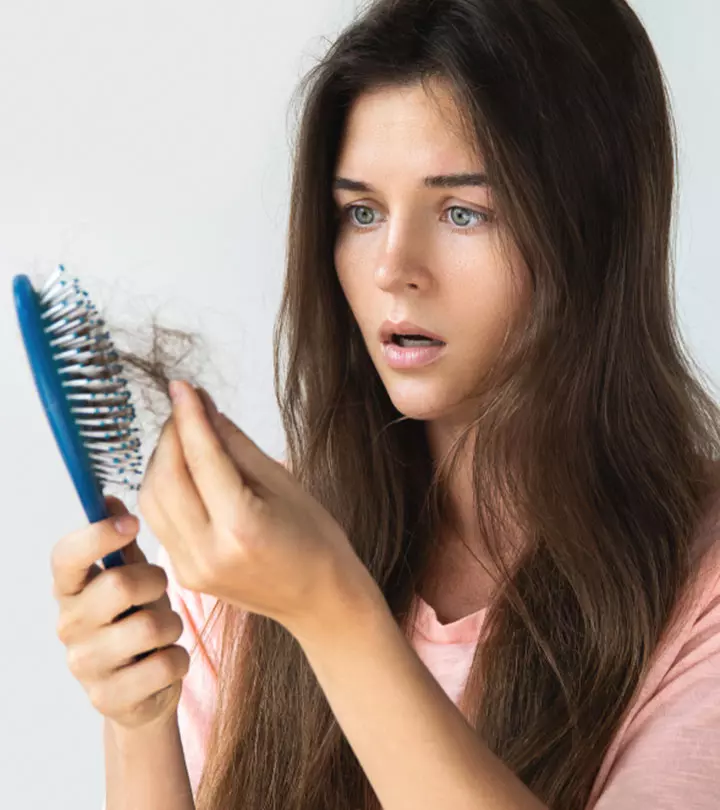
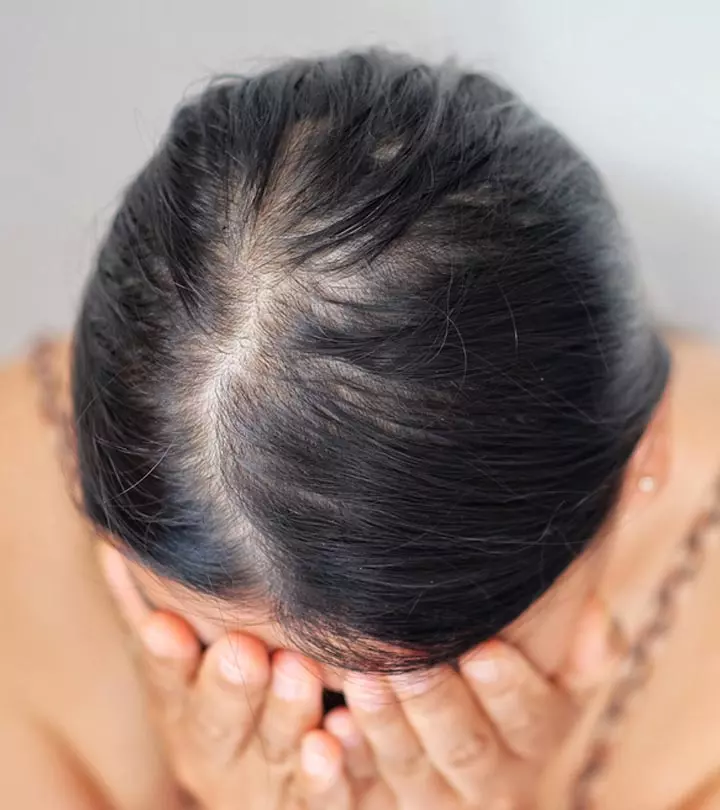

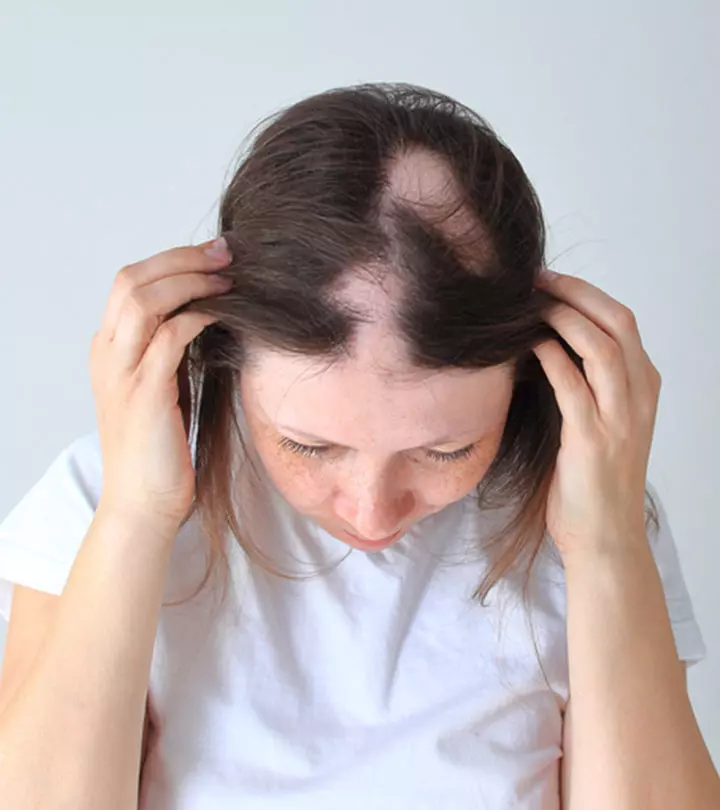
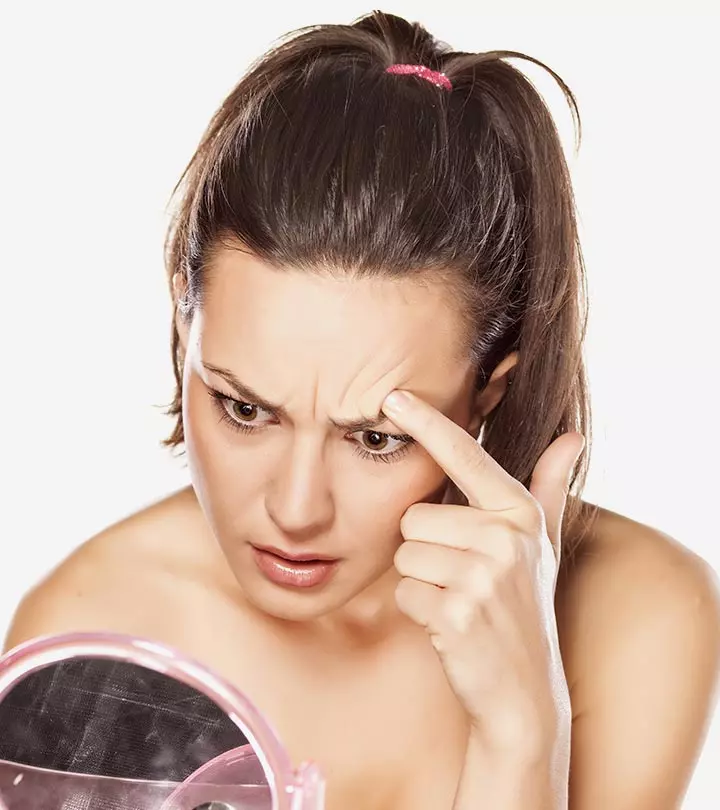

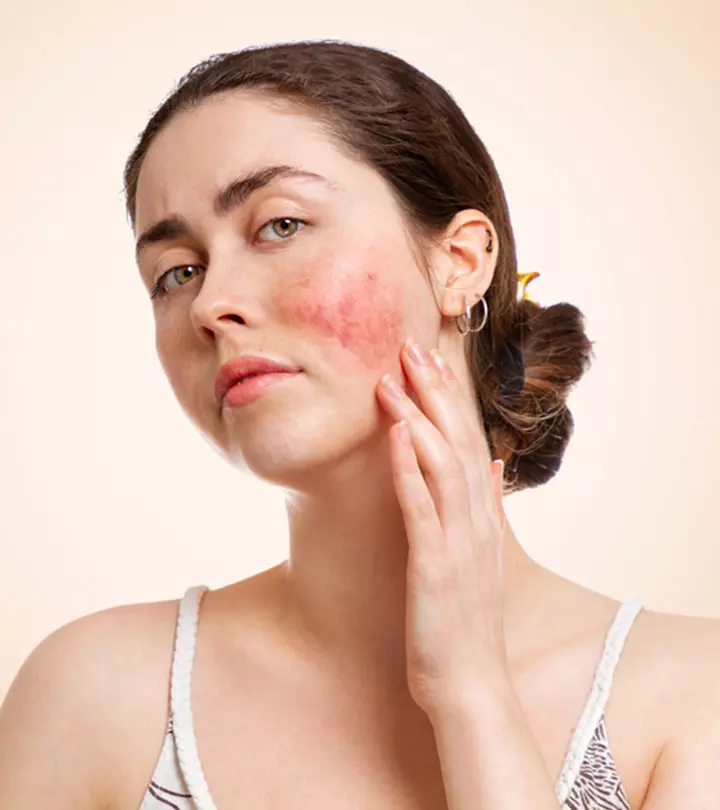
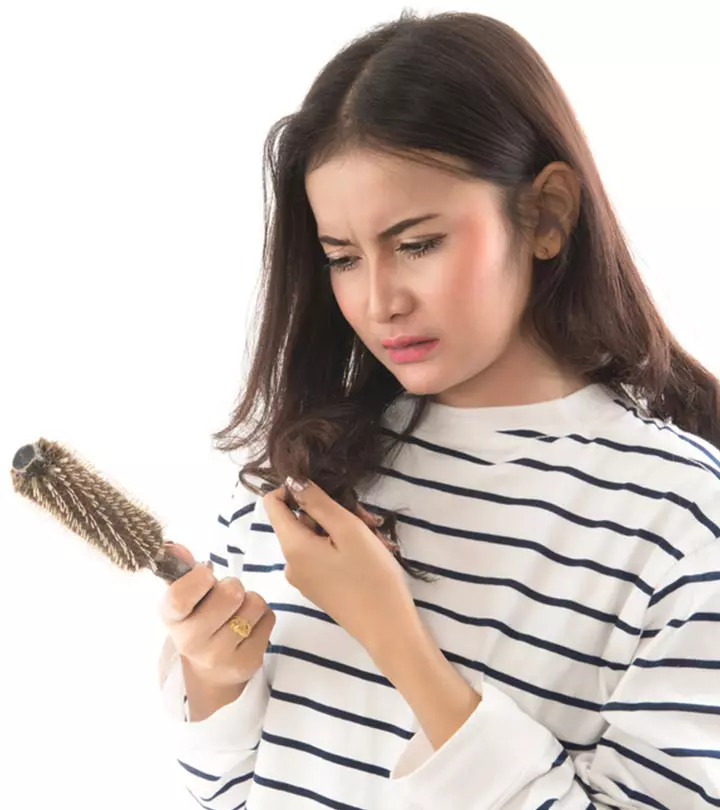







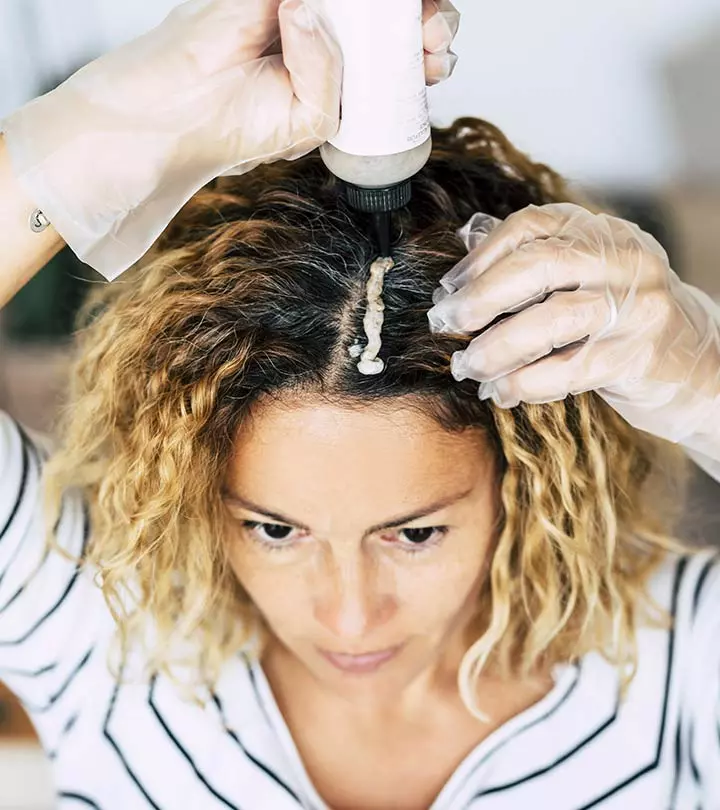




Community Experiences
Join the conversation and become a part of our empowering community! Share your stories, experiences, and insights to connect with other beauty, lifestyle, and health enthusiasts.